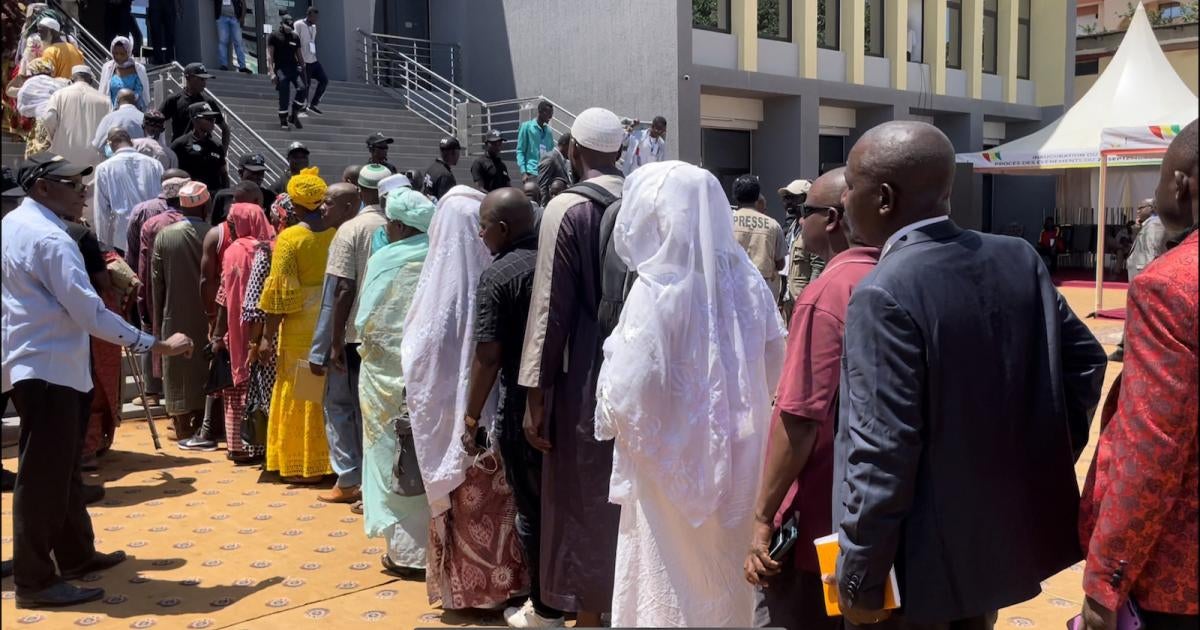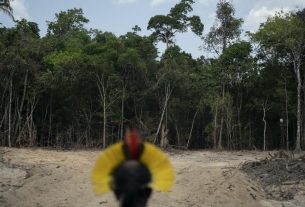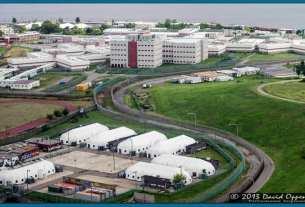(Brussels) – Judges are set to deliberate on a verdict in a landmark domestic trial in Guinea for gross human rights abuses committed by government security forces in 2009, Human Rights Watch said today. The closing arguments of all parties in the trial concluded on June 26, 2024. The judges indicated they will deliberate on a verdict until July 31.
The trial examines one of Guinea’s worst episodes of abuse. On September 28, 2009, Guinean security forces opened fire on a peaceful protest against a bid for the presidency by the then-coup leader Moussa Dadis Camara. More than 150 people were killed and more than 100 women were raped in a stadium in Conakry, the capital. Security forces then engaged in a cover-up, burying bodies in mass graves.
“All eyes will be on Conakry as the long-awaited verdict will provide a measure of reckoning with the brutal abuses of nearly 15 years ago, the effects of which continue to be felt by victims and survivors,” said Tamara Aburamadan, international justice counsel at Human Rights Watch. “The Guinean government should support further national accountability efforts to strengthen its system for addressing serious international crimes.”
Guinean victims and survivors have repeatedly called for revealing the truth and holding those responsible for the brutal 2009 events to account.
This trial is the first of its kind involving human rights violations of this scale in Guinea. It has widely captured the nation’s attention, amid a sustained crackdown on the opposition, dissenters, and the media, leaving hundreds dead and hundreds more injured at the hands of state security forces in Guinea, according to a report by Amnesty International.
Since the trial commenced on September 28, 2022, judges have heard from each of the 11 accused, among them a former president and government ministers, more than 100 victims, and over a dozen witnesses, including high-level government officials. Before the closing arguments started on May 13, judges heard again from three of the accused, among others, during what is known as the “confrontations” phase.
Over the past few weeks, all parties in the trial presented their closing arguments. Thirteen lawyers acting as civil parties – that is, victims with a standing in the case – were followed by the prosecution and the defense counsel for the 11 accused.
Based on Human Rights Watch’s monitoring of the trial and media reports, the victims’ lawyers laid out the horrific events of 2009 and detailed the alleged individual criminal responsibility of each of the accused. Some of the victim’s lawyers requested convictions for crimes against humanity and life sentences for the accused.
In the event of convictions, at least five victims’ lawyers asked the judges to grant a range of reparations claims – between one to three billion Guinean francs (approximately US$115,000 to $345,000) – for each group of victims, including those who have suffered physical and psychological trauma.
Many victims, including survivors of rape and sexual violence, still lack the resources to access medical care for the injuries they suffered in the attack on the stadium and the events that followed, according to the Association of Victims, Relatives and Friends of September 28, 2009.
During the closing arguments phase, the prosecution restated its March request to reclassify the charges to crimes against humanity against the 11 accused and further requested sentences ranging from 14 years to life. Judges have indicated they will only rule on the reclassification of charges request when delivering the verdict.
The defendants include Claude Pivi, a former government minister who remains a fugitive at the time of writing after leaving the detention facility in November 2023 with armed forces and three others of the highest-level accused, including former President Dadis Camara. All the other ten accused, including the three who left the detention facility, are now detained.
In its closing arguments, the defense counsel requested acquittals and responded to the prosecution’s reclassification of charges request. They argued that issuing a reclassification decision at the time of the verdict would violate fair trial rights of the accused, leaving them without the opportunity to defend against the new charges.
Guinean law on criminal procedure provides for internationally accepted rights of the accused, including the right to adequate time and facilities to prepare a defense and the right to a fair hearing.
After the verdict is delivered, the accused and the civil parties have the right to appeal within 15 days. The prosecution has two months to appeal.
Over the years, Guinea’s international partners, including the United Nations, the European Union, and the United States, have encouraged advances in the pursuit of justice for the September 28, 2009 crimes in Guinea. The International Criminal Court (ICC) Office of the Prosecutor also sought to constructively engage with the Guinean authorities to press them to deliver on their early commitment to bring justice in this case.
The role of international actors, including the ICC, appears to have been a major factor in galvanizing progress over time. Continued international support and engagement with the Guinean authorities on the critical importance of justice, including reparations processes, will be essential.
“The conclusion of the stadium massacre trial and the prospect of a verdict provide a glimmer of hope for Guinean victims and survivors that justice can prevail over impunity,” Aburamadan said. “They deserve to see justice realized in a manner that is fair and effective.”



